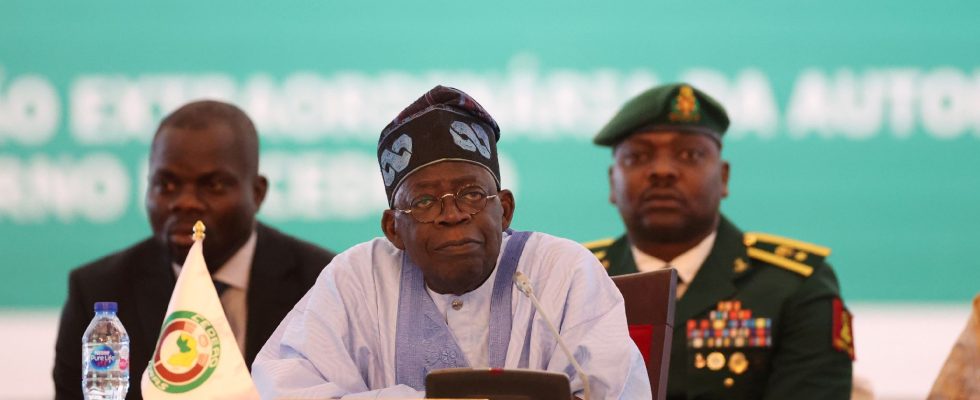The showdown continues between the putschists in Niger and the Economic Community of West African States (ECOWAS). Gathered in Abuja, Nigeria, it decided to mobilize its “standby force” to restore constitutional order. However, the President of Nigeria, Bola Tinubu, who holds the rotating presidency of ECOWAS, still says he hopes “to reach a peaceful resolution”. As explained by Vincent Hiribarren, lecturer at King’s College London and author ofA mango tree in Nigeria. Borno Stories (Plon), Tinubu wants to restore weight on the regional scene in Nigeria, the most populous country and one of the best armed on the continent.
L’Express: At the head of ECOWAS is currently the recently elected Nigerian President, Bola Tinubu. He had promised that he would not allow another coup d’etat…
Vincent Hirigarren: Nigeria has known, like Niger, many putsches. Tinubu himself had to go into exile in the 1990s because of a coup. He has a personal story in relation to these blows and presents himself as someone who fights for democracy, comes from civil society and who says no to the military. In any case, this is the image he is trying to give. On his headdress, which he presents as a symbol of freedom, are thus represented broken shackles.
Moreover, Nigeria has already played a role, in the past, on the international and regional scene, which it had somewhat lost since the beginning of the 2000s. Tinubu wishes to reconnect with this, especially since ECOWAS has been founded in 1975 by Nigeria, which gave it the shape it wanted.
In the event of a military intervention by ECOWAS, the Nigerian army would play a leading role. But can she afford it?
It is the largest army on the continent, the threat is of a certain weight. But in terms of organization, one can have doubts. She is unable to put down the Boko Haram insurgency in the Northeast. It is also an army that had a reputation for violence and looting when it was deployed in Liberia, Sierra Leone and Guinea-Bissau, as part of the ECOWAS military group “Ecomog”. It also has problems with corruption, the training of certain officers, the discipline of soldiers, internal wars and also has to deal with contradictory political orders.
Is the situation in Niger causing a great stir in Nigeria?
It is the neighboring country, with a very long shared border. Many Nigerians live near the Niger border. And culturally, they have common languages, such as Hausa, and share a religion, most often Islam. Economically also they are linked, with twin towns near the border, a Nigerian city facing a Nigerian city. Former Nigerien President Issoufou comes from one of these border towns. There is a lot of trade, of goods in circulation. Much of the livestock consumed in Nigeria comes from Niger.
How does the internal Nigerian context explain the reaction to the coup?
Nigeria is going through a serious economic crisis. Since his election, President Tinubu has wanted to move the lines and break with a predecessor seen as quite passive. He chose to withdraw the gas subsidy. Prices therefore exploded, starting with the cost of electricity. Because everything is done by generators in Nigeria, from office lights to house lights, or to run factories. The population pays more to go to work and for basic products.
To this is added an exchange rate with the dollar which is not stabilized, and a lack of national foreign exchange reserves. Nigeria is also experiencing a war in the northeast of the country, with the jihadist group Boko Haram, but also banditry in the center and north. The crisis in Niger makes it possible to focus on something else.
